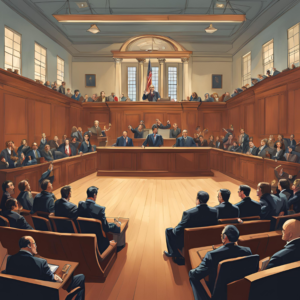In a powerful and unexpected move, pop icon Taylor Swift has publicly endorsed Kamala Harris for president. The endorsement, made via Instagram, follows an incident where Donald Trump circulated AI-generated deepfake images falsely claiming Swift’s support of him for president. The incident sheds light on the growing influence of AI manipulation in politics, highlighting the dangers of misinformation.
Swift, who had remained neutral in the political conversation, said she was compelled to speak out after witnessing these deepfakes. Trump had reposted manipulated images of Swift and her fan base, known as “Swifties”, on his Truth Social platform. While the images were initially posted as satire on X (formerly Twitter), Trump used them to suggest that Swift had thrown her support behind his campaign. In her statement, Swift made it clear that these deepfakes stirred her fears about the role AI could play in spreading misinformation, especially ahead of a crucial presidential election. She emphasized that the best way to combat such falsehoods is with transparency and truth, encouraging her followers to research thoroughly and stay informed.
Concerns About Deepfakes
The incident comes at a time when AI-generated deepfakes have become increasingly sophisticated. These digitally altered images, videos, and even audio clips present fabricated content in such a convincing manner that many people may believe it without question. Experts worry that, as AI evolves, deepfakes could have a significant impact on voters’ perceptions and the overall democratic process. Misinformation at this scale undermines trust, making it harder for voters to distinguish between truth and fabrication.
Trump’s use of deepfakes didn’t stop at Swift. He also accused the Harris campaign of inflating rally numbers using AI, although evidence proved the crowds were accurately depicted. This tactic illustrates how AI can be wielded not only to manipulate public opinion but also to discredit opponents, creating a dangerous feedback loop where truth becomes harder to verify.
Experts have voiced concern over the rise of AI deepfakes in political discourse. They recommend a cautious and critical approach to any content that seems too sensational or odd. People are encouraged to scrutinize details such as motion, lighting, and phrasing in deepfake videos, as these often contain subtle flaws. Moreover, fact-checking sources and relying on trusted outlets is crucial in an age where AI can convincingly alter reality.
Swift’s call to action is timely. With elections approaching, she urges voters to not only register to vote but to do so armed with factual information. Her stance against AI manipulation is more than a political endorsement—it’s a reminder of the importance of truth and transparency in today’s rapidly evolving digital landscape.



